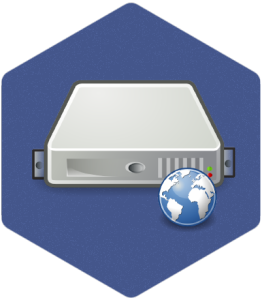Web hosting guide
There are a lot of companies that offer web hosting. This web hosting guide is written to uncover the hidden truths about web hosting. You will narrow your options and feel more confident knowing you are getting exactly what you need. You will also learn the pitfalls to avoid.
Dedicated Hosting vs. Shared Web Hosting.
Having a dedicated web server means you are renting access to an Internet-connected computer. Your dedicated server runs its own operating system, and its own memory and hard disk space. It’s up to you to manage and monitor your server. Most servers are actually dedicated virtual servers. That means you don’t get an entire computer. You get a virtual computing environment. It’s a bit like the way you can run Windows on your Mac. With a dedicated virtual server, you can decide how much memory and hard disk space in the machine you want, but the more you use, the more it will cost.
Buying shared web hosting means you are sharing resources with many other web sites that are hosted on the same computer. Shared web hosting is far less expensive, but you are betting on other people’s web sites to be optimized properly. In hopes that the whole system doesn’t run out of resources. These servers are monitored carefully. If your website consumes too many resources or suddenly starts receiving unusual amounts of traffic, the system admins might disable your website temporarily to regulate the system.
What about Cloud hosting?
Cloud hosting has some discreet advantages and disadvantages. If you are simply looking for a way to get your website online, cloud hosting might not be your best bet. But if you are looking for a redundant backup solution or a load-balanced and co-located web service to provide fast access to your application across the globe, look no further! If you have no idea what I’m talking about, let’s just move on.
Cloud services don’t give you a dedicated machine. The whole philosophy of the “Cloud,” is that you have lots of computers working together to provide maximum CPU power, memory, and hard disk space for the application(s) running inside the eco-system. Cloud services make it simple to add redundancy, automatic backups, load balancers, etc. for your application. With cloud services, you pay for how much the whole system works for you. The more resources you use, the higher the price. Cloud services are best suited for custom-built applications. If you are building your own SaaS (Software as a Service) application, using a cloud server is the best way to scale; using fewer resources when you’re just getting started. When you start getting lots of traffic, managing lots of different users, you’ll demand more resources. With a cloud service, you will simply bump up to a bigger plan and pay more money. No need to upgrade or switch to a more powerful system.
If Cloud-based hosting sounds like what you need, head over to Amazon Web Services. AWS is the de facto standard for cloud services. And, if you are looking at other options, there is a good chance it will be built on AWS anyway.
 Server Breakdown.
Server Breakdown.
In simple terms, a server is a computer program that sends information to whoever (or whatever) is requesting information. Servers communicate over a common language knows as HTTP, or HyperText Transfer Protocol. Apache, Nginx and Microsoft Internet Information Server (IIS) are common web server types. Each handles security in their own way, and it’s up to you to decide which one you like the best. Apache Web Server is the most popular choice. Currently, 56.8% of the websites on the Internet use Apache to serve web pages.
There is other software that runs the same computer as the web server, which enables to server to do more than just serve web pages.
 |
FTP ServerFTP stands for File Transfer Protocol. It’s an easy way to move files between your computer and the web server. You access the FTP server using your username and password. |
 |
Application ServerThe Application Server runs code written in programming languages such like Java, Ruby, PHP and C#. When the web server is asked for something, the application server processes the request and sends the result back to the web server. |
 |
Database ServerSome information needs to be stored away and quickly accessed later. Relational databases are perfect for saving information for later use. Databases reference related information and depending on how you query the database, you can get as much or as few results of the related data as you wish. |
 |
Email ServerAn email server or Mail Transport Agent sends and receives email for you using your server’s domain name. This allows you to have an email account personalized just for you. You can optionally configure a 3rd party mail service such like Google Apps if you prefer. |
 |
Server Configuration UtilityWeb hosting companies typically provide an easy management tool for managing and maintaining your server. It allows you to easily configure your server to do exactly what you need to do. |
 |
Account ManagementYour web server will have a way to manage access; resetting your password, updating your payment information, etc. |
Before you commit to a hosting company, review the company’s history and reputation. If the company has a long standing reputation of taking care of its customer’s needs, you will likely be a happy customer yourself. Some people like to support the small local businesses, but small doesn’t usually lead to reliable. Small businesses are typically white-labeling other larger company’s hosting services anyway. If the company you are purchasing hosting from is too large, it becomes a target for cyber-attacks. Another thing you will want to avoid. Review this web hosting guide regularly and check out the web hosting scorecard before you make a decision.
Once you feel good about your decision, be ready to accept an inevitable truth; technology will change, and so will your needs. The goal is not to be set for life, just keep you going long enough for you to grow into something bigger.
